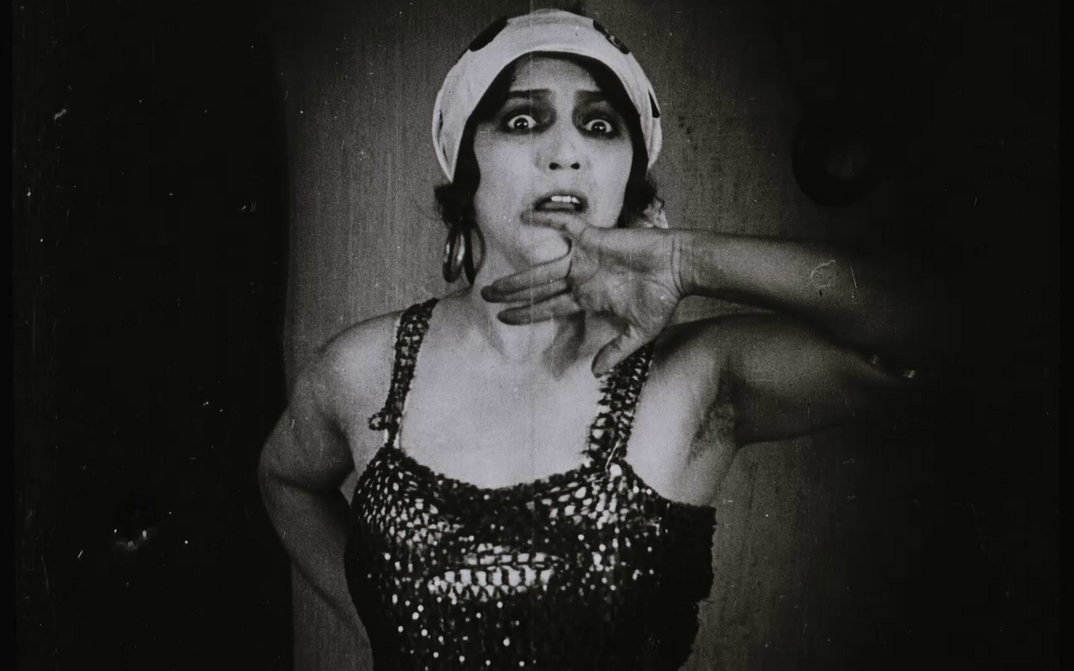Aberglaube and Das Bacchanal des Todes

Fri 21.10.
19:00
Cinema
Arsenal 1
Director
Georg Jacoby
Germany / 1919
50 min.
/ 35 mm
/ Dutch intertitles and English subtitles
Original language
Silent
In her early films, Ellen Richter frequently played outsiders whether it be an Indian temple dancer, a Japanese geisha, or an Egyptian slave. With her dark hair, dark eyes and comparatively dark complexion, she looked different to many of her contemporaries. Hardly any of these early films have survived. An exception is ABERGLAUBE (Superstition) in which Richter plays a “gypsy” and circus performer. Unintentionally, she awakens self-destructive passions in the men she encounters. When she finally finds happiness, a superstitious mob rises up and stones her to death. The ending is reminiscent of other films made around the same time that depict anti-Jewish pogroms and take a stand against rampant anti-Semitism.
Director
Richard Eichberg
Germany / 1917
36 min.
/ 35 mm
/ Dutch intertitles and English subtitles
Original language
Silent
In DAS BACCHANAL DES TODES (The Bacchanal of Death), Ellen Richter plays the neglected muse of an artist who, out of jealousy, incites a man devoted to her (Werner Krauß) to murder. Both ABERGLAUBE and DAS BACCHANAL DES TODES survive only in incomplete form. (Philipp Stiasny/Oliver Hanley)
Live music:
Pianist Richard Siedhoff from Weimar and the oboist Mykyta Sierov from Kyiv share a rapport, having known each other since their student days. Their playing together creates a new kind of musical experience: where the piano once stood alone in dialogue with the film images, now the oboe, hitherto ignored in silent film music, adds a new ingredient to the mix. The reed instrument gives the shadows on the screen their own voice, spirited and unmistakable, at times talkative, at other times taciturn. Siedhoff, who is also a prolific soloist, composer and film curator, was awarded the German Silent Film Prize in 2020 for his reconstruction of Hans Landsberger's original orchestral score for Der Golem, wie er in die Welt kam (1920).